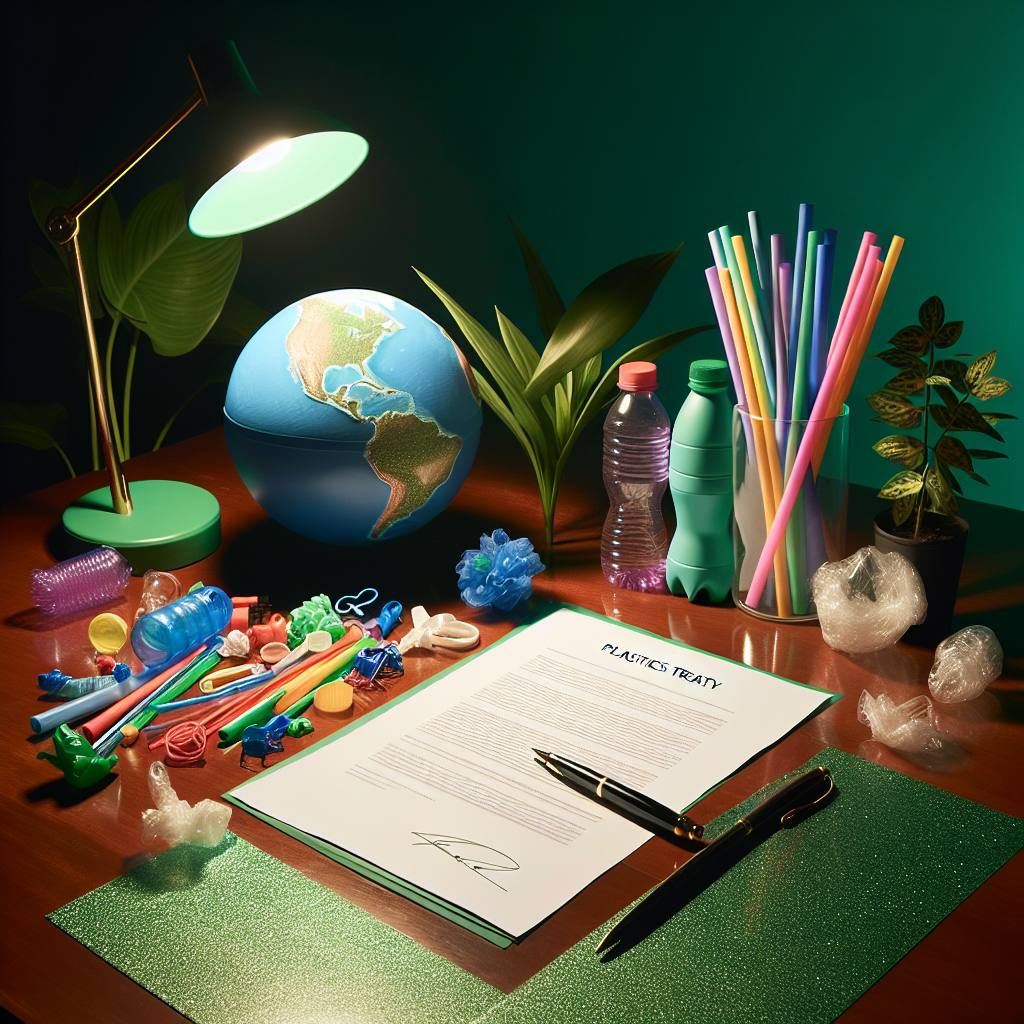Global Treaty on Plastic Pollution Hangs in the Balance
As negotiations in Geneva on a groundbreaking treaty against plastic pollution reach a critical point, disputes over its scope and restrictions threaten to derail progress. Nations are struggling to reach a consensus, with oil-producing countries opposing strict curbs on plastic production. A comprehensive agreement remains elusive.

In Geneva, the world's first legally binding treaty aimed at tackling plastic pollution stands on the precipice as negotiations head towards their final hours. Nations are entrenched in disagreements, with a significant impasse over the inclusion of key articles addressing the entire life cycle of plastic pollution.
Countries such as Panama, Kenya, France, and Britain, advocating for a comprehensive treaty, have expressed dissatisfaction over the omission of critical aspects from the draft text, including health impacts and polymer production wastage. Conversely, oil-producing nations are resistant to any curbs on virgin plastics derived from fossil fuels.
The delay in consensus has seen calls for substantial compromise, with Norwegian Minister Andreas Bjelland Eriksen emphasizing openness to discussion. Meanwhile, industry leaders highlight the potential benefits of the treaty, warning against a fragmented approach without global harmony. The debate underscores the high stakes of this pivotal environmental issue.
(With inputs from agencies.)










